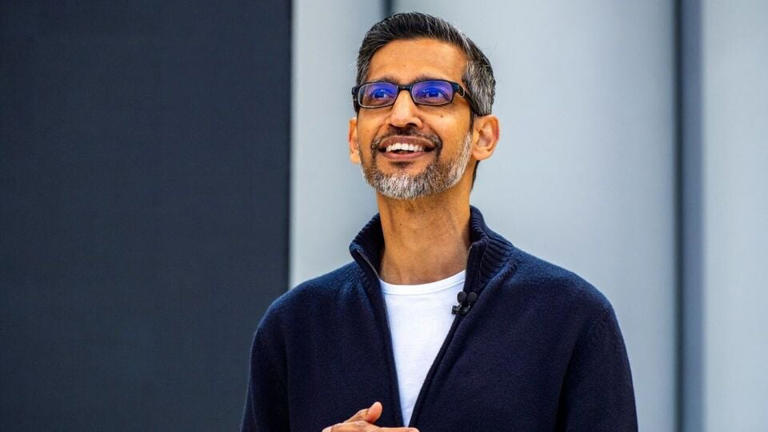Artificial Intelligence is transforming industries, and hiring is no exception. Google’s CEO, Sundar Pichai, recently shared how AI has influenced the way companies now recruit engineering and programming talent. His insights highlight both opportunities and challenges, particularly around maintaining fairness and ensuring genuine skills are assessed.
Why Hiring Needed a Change
In recent years, most technical interviews shifted online. Virtual interviews made the process faster, easier, and more convenient for both candidates and recruiters. However, with the rapid rise of AI-powered tools, candidates began using them to solve programming problems in real time.
While AI can help boost productivity, this trend raised concerns about whether interview results truly reflected an individual’s skills. At one point, studies suggested that more than half of candidates in virtual technical interviews might be using AI assistance off-camera.
Google’s Response: Bringing Back In-Person Interviews
To address this challenge, Sundar Pichai revealed that Google is reintroducing in-person rounds of interviews for engineering hires. The goal is simple: ensure candidates have a strong foundation in problem-solving and programming, without leaning on hidden AI help.
Pichai explained that while virtual interviews save time—scheduling them takes nearly two weeks less—they cannot fully replace face-to-face evaluations. A hybrid approach is now being adopted: virtual rounds for speed and reach, combined with in-person assessments to test authentic ability.
Employee Concerns Drove the Shift
This change wasn’t just a top-down decision. Google employees themselves raised the issue during internal town halls, asking leadership to bring back onsite interviews. Many felt that relying only on remote hiring made the process vulnerable to unfair advantages and created doubts about candidates’ true skills.
Industry-Wide Movement
Google is not alone in this. Other major firms like Amazon, Anthropic, Cisco, McKinsey, and Deloitte are also introducing stricter anti-cheating measures. Some require in-person interviews, while others ask candidates to sign pledges confirming they won’t use unauthorized tools during assessments.
This marks a wider shift across the tech industry: companies want the benefits of AI in coding, but they also want hiring to remain fair and reliable.
AI: A Job Killer or Job Booster?
Interestingly, while AI complicates the hiring process, Sundar Pichai reassures that it isn’t eliminating jobs. Instead, Google expects its engineering workforce to keep growing in 2026 and beyond. AI is seen as an accelerator, helping engineers work faster and more creatively, not as a replacement for human talent.
For instance, at Google, AI already helps generate over 25% of new code, speeding up development cycles. Leaders like Pichai and even co-founder Sergey Brin are hands-on with AI tools, experimenting with coding assistants that generate entire programs from natural language prompts—a style Pichai jokingly calls “vibe coding.”
Final Thoughts
AI has undeniably reshaped how companies hire and how employees work. While it introduces challenges like cheating risks in online interviews, it also opens new possibilities for creativity and speed in programming.
Sundar Pichai’s approach highlights the importance of balance: using AI as a powerful tool while still protecting the integrity of hiring. The future of recruitment may be hybrid, but one thing is clear—human skill, creativity, and problem-solving will always remain at the core.
